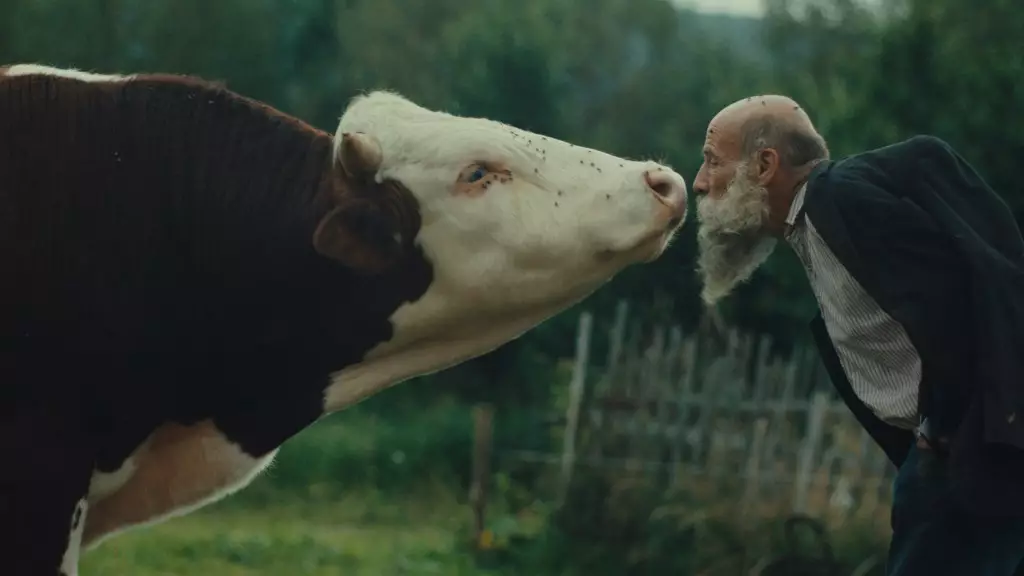In an era saturated with curated narratives and polished storytelling, the allure of raw, unfiltered authenticity remains one of the most seductive promises of documentary filmmaking. Yet, beneath this veneer of truth lies a complex tension that is often overlooked: the danger of romanticizing marginality and eccentricity at the expense of meaningful insight. The recent award-winning documentary that has captivated audiences at the 59th Karlovy Vary International Film Festival exemplifies this dilemma. While it bears visual and thematic resemblances to classics like *Grey Gardens* and *Pictures of the Old World*, it raises important questions about whether the pursuit of “authentic” lives genuinely fosters understanding or simply reinforces stereotypes of the “other.”
The Allure of Quirk and the Fetishization of Marginalized Lives
Films that document unconventional lifestyles often walk a fine line between empathy and voyeurism. This particular documentary gleams with moments of humor, eccentricity, and candid revelations—like brothers living in a dilapidated farmhouse, discussing life and politics with unvarnished honesty, occasionally shedding their clothes in front of the camera. Its narrative tantalizes viewers with images of rugged simplicity, rustic wisdom, and the rawness of human existence removed from modern society’s hustle. But is this objectivity, or is it a carefully curated spectacle that feeds into viewers’ voyeuristic fantasies about “authenticity”?
Rescuing the simple folk from their perceived obscurity can foster empathy; however, it also risks perpetuating a caricatured view of rural life, where complexity is flattened, and profound struggles are reduced to entertaining eccentricities. The obsession with “finding truth” in the lives of such individuals often neglects the underlying socio-economic and political conditions that shape their realities. Instead of confronting the systemic issues, the film offers us a sanitized tableau that emphasizes their colorful personalities rather than the realities of marginalized rural communities.
When Obscurity Becomes a Distraction
The documentary’s limitations become glaring when we realize how little context or critical reflection it actually provides. The filmmakers seem content to linger on the surface, delighted by the horror stories of personal eccentricities or candidly bizarre moments, like a brother’s frank disdain for moles or the sight of them frolicking naked. While moments like these evoke humor, they also overshadow deeper questions: How do these men sustain their lifestyle? What social alienation do they experience? How does their political activism in their youth inform their present?
By withholding detailed backstory or analysis, the film teeters dangerously close to voyeurism, offering fleeting glimpses into their history without truly engaging with their broader social and political significance. This selective storytelling prioritizes spectacle over substance, which diminishes its potential to incite meaningful dialogue about rural poverty, disengagement, or the residual effects of political activism. In this sense, the film’s fascination with eccentricity inadvertently becomes a barrier to understanding.
The Romanticization of Rebellion and Nonconformity
One of the most troubling aspects of this trend is the way in which films elevate rebellion and nonconformity into romantic ideals. The two brothers’ history as anti-regime activists adds a layer of political significance to their personal narrative. Yet, the film offers this information sparingly, almost as an afterthought, avoiding any critical discussion of how their radical past influences their current lived reality. By frugal storytelling, it risks making political history feel like a distant ornament rather than an integral part of their identity.
This tendency feeds into a broader societal impulse: to revere eccentricity and marginality without critically assessing the societal structures that produce such individuals. The danger lies in fostering a narrative that celebrates these lives solely because they appear unique or “authentic,” stripping away the complexities and compromises that inevitably come with political activism and social disenfranchisement. Instead of fostering empathy that challenges stereotypes, the film inadvertently reinforces a fascination with the spectacle of rebellion divorced from its realities.
The Problematic Appeal of the “Authentic” Outsider
Films like this often promise viewers an unfiltered view into lives untouched by mainstream society. Yet, there exists an inherent paradox: the pursuit of authenticity can sometimes distort reality, transforming individuals into symbols rather than fully realized human beings. The brothers’ candid conversations, drunken antics, and intimate moments are polished enough for a film camera, yet they lack the nuance necessary for genuine understanding.
The focus on eccentricities and bizarre quirks distracts from the more pressing questions about their mental health, social isolation, or economic survival. In emphasizing their “authentic” nature, the film risks inadvertently commodifying their lives, turning them into objects of fascination rather than companions in understanding. The ‘rawness’ becomes a spectacle that obscures rather than illuminates the deeper stories of resilience, alienation, and societal marginalization

Leave a Reply